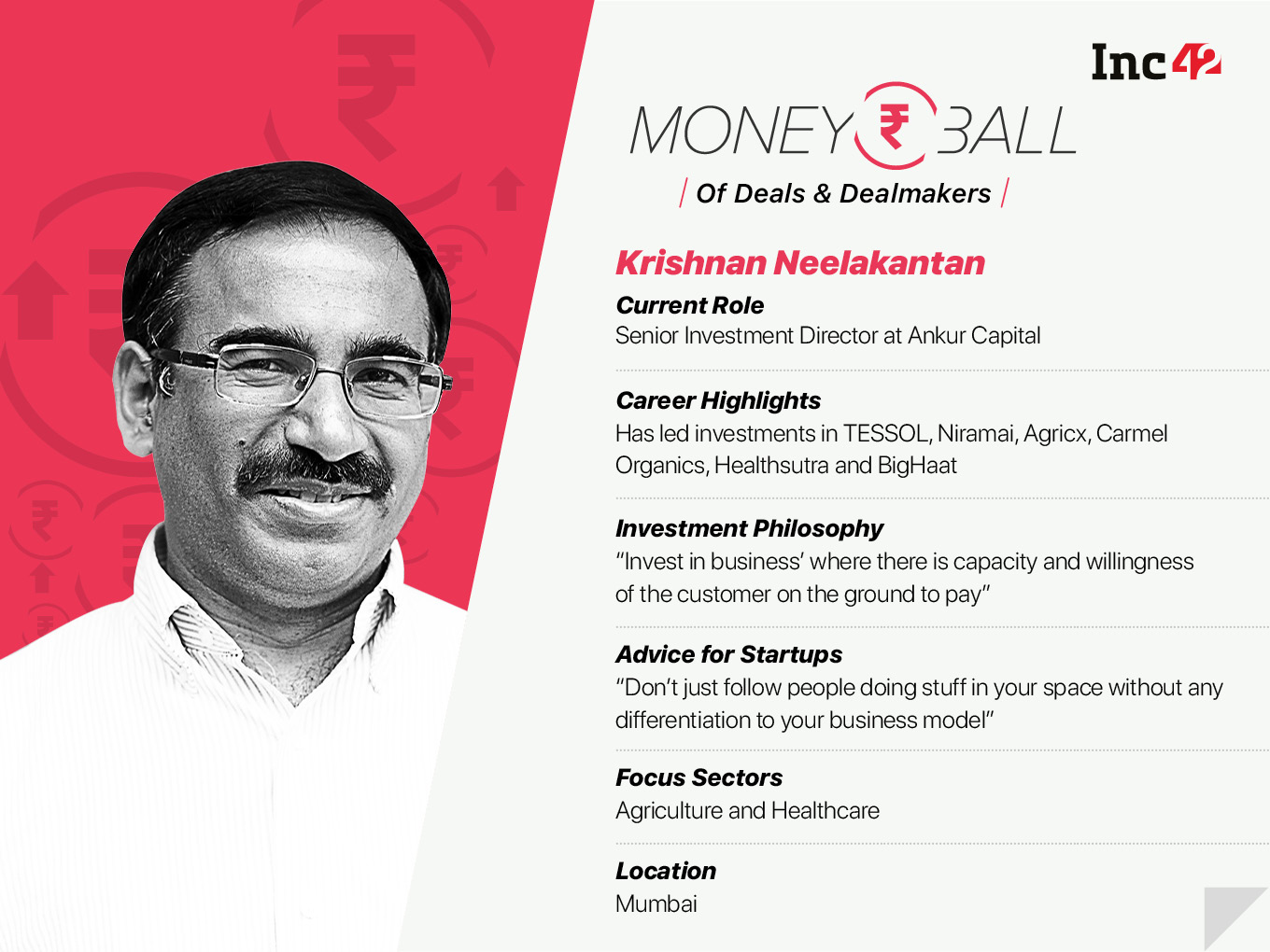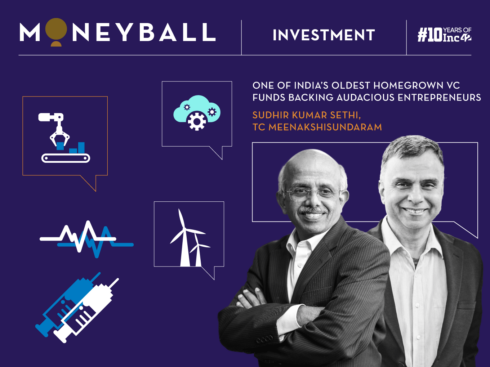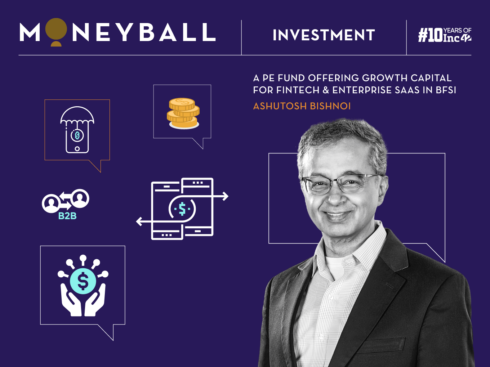SUMMARY
Krishnan Neelakantan of Ankur Capital sees large business opportunities in traditional spaces such as agriculture, education, and healthcare
Ankur Capital in the process of wrapping up a couple of more investments and expects to make a total of 14-15 investments from the first fund
"As a fund, we look at companies that, through their business, will create meaningful and measurable impact for the next billion Indians," says Neelakantan
It is rare for one to get the best of both the worlds, especially when the worlds we’re talking about are as disparate as those of profit and non-profit. A capitalistic society, by its very nature, is profit driven, and usually, the ones sitting in the driver’s seat of businesses are venture capitalists.
But there exists a compromise.
It’s called impact investing — an investing model that enables delivery of specific benefits to the society in addition to financial gain to the immediate stakeholders.
Sounds too good to be true? But it is. The demand for socially responsible and purpose-driven finance is booming in India and is expected to grow from $6 Bn (2016) to $8 Bn by 2025. This follows the international trend with the global market for impact investments projected to grow to $300 Bn or more by 2020, according to the Global Steering Group on Impact Investment.
In India, not enough is known (or said) about impact investments. So, in this week’s Moneyball, Inc42 spoke with Krishnan Neelakantan, a Senior Investment Director at India-based venture capital fund Ankur Capital, which focusses on early-stage funding and invests in sectors such as agriculture, healthcare, and skill training, with the mandate of causing a positive impact on the society.
Neelakantan has spent 17 years working in the public market doing equity market research. He started out with ICICI Securities, where he worked for four years, before moving on to a long-time association with investment group CLSA (formerly known as Credit Lyonnais Securities Asia), where he ended up becoming Executive Director, Head of Research.
After accruing years of experience in his professional life, Neelakantan still felt something was missing. He wanted to do something that enabled him to give back more to the society.
“I joined Ankur Capital because I liked the thought process that you can build businesses from not just the perspective of achieving a small scale profitable enterprise, but of achieving the significant potential of scale that is available,” says Neelakantan. He simultaneously highlights the fact that in 2015, money for investments was flowing to India and Ankur Capital’s measured approach amid the boom caught his attention, leading him to join the firm that year.
At Ankur Capital, Neelakantan has led investments in TESSOL, Niramai, Agricx, Carmel Organics, Healthsutra, and BigHaat.
For its first fund, Ankur Capital raised $10 Mn in 2014 from multiple investors and now has plans to raise $50 Mn for its second fund.
Ankur Capital is a relatively young fund and, as such, has its own startup story to tell.
“When you are in a startup phase, you need to be on steroids. You have limited capital and, therefore, you know you have to get to some point before you are out of cash,” Neelakantan says.
Here are excerpts of this week’s Moneyball with Krishnan Neelakantan, Senior Investment Director at Ankur Capital.

Inc42: What drove you to impact investing?
Krishnan Neelakantan: There were large business opportunities that existed in traditional spaces like agriculture, education, and healthcare and, at the same time, there were these young enterprises that were doing some good work here. Thus, we felt there was a large opportunity that existed in servicing the needs that arose from this scenario while also making money.
I had worked in the public market for 17 years and used to do equity market research for CLSA and ICICI Securities. I personally was looking at doing something more impactful and that’s the reason why I had a taken a sabbatical of a year in 2011-12. I wanted to move into a space focussed on delivering social impact and also wanted to explore how best I would be able to do that, rather than just thinking of the NGO route.
I came across a non-profit organisation called Samhita, which was trying to help companies improve their Corporate Social Responsibility (CSR) initiatives. I felt that given my experience, this would be a good fit. Also, at the time, mandatary CSR regulation (enacted into law with effect from March 31, 2014) was coming up and companies didn’t know how to go about it and they were looking for partners.
Samhita had a fairly unique positioning around helping the corporate sector create much more impact by guiding them on strategy, designing impactful programmes, and enabling the partnership with high-quality NGO implementation partners.
Inc42: And you felt this was for you. Why?
Krishnan Neelakantan: Having developed a good understanding of how companies run their business and having built networks through a decade-and-a-half of experience in equity research, I felt I would be able to add value to help build this engagement.
Over the next couple of years, we built the organisation from a small team of five to 35 people. Having worked about two-and-a-half years there, I felt satisfied with what we had achieved, but, at the same time, I had an inclination for investor-backed ventures for creating impact and also profit.
I joined Ankur Capital because I liked the thought process that you can build businesses not from not just perspective of achieving a small-scale profitable enterprise, but of achieving the significant potential of scale that was available.
At a time (2015) when money was being pumped into India and cash was chasing every possible idea, the Ankur Capital team was very disciplined in the way it went about doing its investments…market opportunity, the impact, and whether there was anything different in what they were doing.
Inc42: What are some of the key areas you invest in?
Krishnan Neelakantan: There are whole sorts of underserved sectors in India. The sectors we look at need to interact and serve large sections of people. The other thing we try and figure out is if there are any other changes or catalyst that will unlock the opportunity.
Agriculture is a critical and huge sector, but farmer incomes are very low, therefore, it is a large problem but also a large opportunity. We saw that we were at the cusp of digitisation in India, where the mobile telecom network had expanded, moving from 3G to 4G. Reliance Jio was already talking about what it wanted to do and also doing things on the ground.
Inc42: You invest in a broad range from anywhere between $67,347 (INR 50 lakhs) to $673,475 Mn (INR 5 Cr). Why so?
Krishnan Neelakantan: We come in in a tranched manner and what we say is that this is the first stage and that sometime in the future, you will need more capital and we will partner with you again…we will participate in more than one round and that’s the reason why you see a large range. Our first cheque is usually in the range of $135,000 (INR 1 Cr) – $404,070 ( INR 3 Cr).
Inc42: What stakes do you take in?
Krishnan Neelakantan: Generally we look to have between 15%-25% in the company.
Inc42: Has the second fund $50 Mn been closed?
Krishnan Neelakantan: We expect to close it soon but are not putting a timeline on it at the moment.
Inc42: How many investments have you made in all?
Krishnan Neelakantan: Eleven. And we are closing the paperwork on a couple more…our objective was to get to 14-15 from the first fund.
Inc42: What are some of the trends you are excited about?
Krishnan Neelakantan: Healthtech is going to be a very important sector, since India has a very significant shortage of qualified healthcare resources, particularly in rural areas and other remote regions where healthcare infrastructure is also deficient, and technology could be a key enabler to address the gap.
A number of startups are coming up with innovative products that leverage the big increase in digital connectivity in India as well as emerging technologies, including artificial intelligence, to overcome the constraints around infrastructure and human resource and deliver affordable, high-quality solutions.
A company that we invested in is called Karma Healthcare. The logic here was that their assisted telemedicine model, powered by an intelligent technology platform, provided a way for the rural population to get access to good quality doctors from the cities while being in a local centre that allowed for a familiar customer experience.
The platform is also an intelligent system that, with a history of over 80,000 patient consultations and enough data on local trends and disease patterns, will help the doctor with the first line of suggestions/recommendations.
Inc42: How do you see the business in impact ventures?
Krishnan Neelakantan: If you take the example of Niramai, which has developed an early breast cancer screening solution, we would not have looked at it if it was a very niche area or the economics of it wouldn’t have worked. The technology might be helping deliver the service, but it’s their capacity and willingness of the customer on the ground to pay. Is there a scalability or does it hit a wall? How do we see other funds being there for future collaborations?
In the case of Karma, what we found was that in villages the capacity and willingness to pay is not trivial and they are realising INR 200 from a patient on average, which is like a small clinic in Mumbai.
Inc42: Any advice for startups?
Krishnan Neelakantan: The first thing would be to find out is if the problem you are solving is a large one and are you following a bunch of people doing stuff in this space without any differentiation in the business model.
You are probably selling to a customer set that is known by other players, who might not be selling the same product but might be selling similar products to them or maybe other products to them…in any case, they might know how to build relationships, how to articulate the value proposition, how to motivate and drive the sales team. Maybe you might have to be innovative in how you make them take notice.
Everything looks exciting initially, but are you thinking ahead to see if this was a larger differentiated business opportunity.
Inc42: What are some of the challenges that you face?
Krishnan Neelakantan: When you are in a startup phase, you need to be on steroids. You have limited capital and therefore you know you have to get to some point before you are out of cash.
Because if you are out of cash and you haven’t proven anything, then you anyway will not get more (investments). The challenge is how you equip yourself to be able to do that and have that kind of traction to attract the pull of future investors.
With the boom in startup activity in India and the developing of an end-to-end startup ecosystem (with incubators, accelerators, and entrepreneurship cells across college campuses) over the last few years, we see a large number of early-stage enterprises that could be potential investments for the fund. Having an efficient process to narrow down to those that can create significant value is thus a key imperative for us.
The team has gotten better at it over the years, but as a fund that puts in a lot of rigour into its evaluation process, this process still takes up a lot of bandwidth.
Maybe this is also because we also love the intellectual challenge of grappling with new technologies, products, and business models and figuring out what will work.
When it comes to sourcing, we feel that we sometimes miss out on seeing good opportunities in the first instance because of the perception that impact funds would invest only in ventures that are explicitly focused on impact, rather than building economic value.
As a fund, we look at companies that, through their business, will create meaningful and measurable impact for the next billion Indians. In some cases, we may see a strong proposition in a technological innovation/product that can deliver this over time and evaluate (them) for investment, even though the social impact is not the highlight of the entrepreneur’s pitch.
(This interview has been lightly edited and condensed for clarity.)
[Update 1, October 10, 2018, 15:19- The story earlier mentioned a few incorrect figures. It has now been updated with the correct figures post discussion with the company.]
This article is part of Inc42’s Moneyball series in which we bring you up close and personal with the pioneers of the investment world. Dive in to find out about what excites them, their views on the latest technology and investment trends, and what the future looks like from their viewpoint! Explore more stories here.































 Ad-lite browsing experience
Ad-lite browsing experience